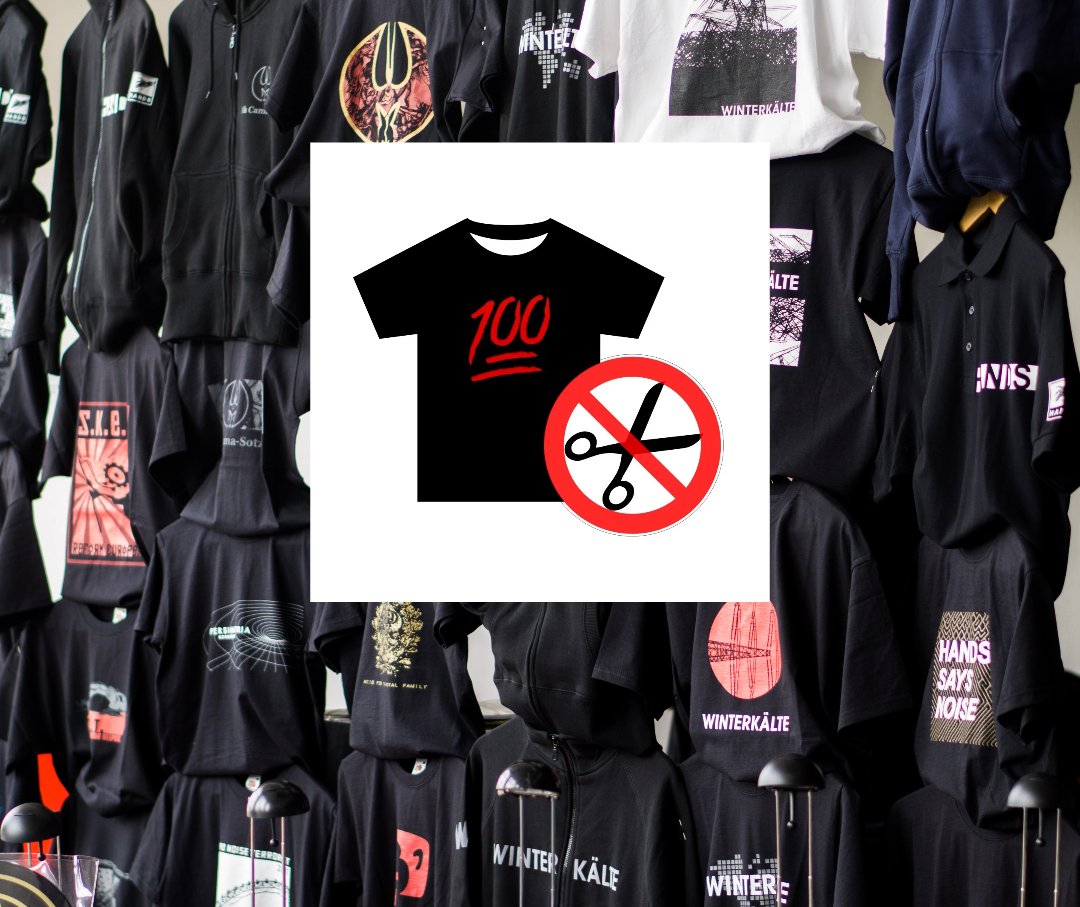
Is it a case of get your hand outta my pocket or get your pocket off my hand? The jury is still out, or yet properly informed, as the global conglomerate Live Nation launches the On The Road initiative, which allows touring acts to keep 100% of merchandise sales on show nights.
The company has controlling interest in 338 venues around the world, but the new program is aimed at 77 smaller to mid-size venues (think anywhere from 300-1000 people) where emerging acts typically hone their craft and work to make the leap into the big leagues (think amphitheaters and arenas). Live Nation is also offering a $1,500 stipend for gas and expenses for touring acts. Sounds good, right?
The National Independent Venue Association (NIVA) is calling BS on the plan though, citing a variety of reasons. The major concern is that acts will want to route tours solely through Live Nation-owned venues that offer the incentive, choking out smaller venues in an already tight live music market. There is no known or official clause that requires acts to solely play Live Nation venues, but Live Nation – after its merger with Ticketmaster – looms large in the live music industry, controlling roughly three-quarters of the ticketing and live event market.
What does it all mean for bands and their fans?
First things first: What is a merch cut? Plainly put, a merch cut is a percentage that venues get from artist’s soft goods – vinyl, T-shirts, hats, lighters, koozies, and all other goodies found on a merch table at shows. A typical cut for the venue can range from 10% to 30% depending on the venue and the deal. The logic behind the fee is that venues, notoriously operating on thin margins as is, provide a space for the merchandise to be sold and deserve compensation for that space. The fees are then rolled back into the venue operating expenses and the doors stay open. Ultimately, a band’s booking agent is responsible for negotiating the merch fee in advance and at the end of the night everyone squares up and moves on.
Yoke Lore shared the merch breakdown of their last tour with us. They lost over $8500 in merch cuts over 24 dates. Merch cuts must end NOW! pic.twitter.com/2KnZcgAFmQ
— United Musicians and Allied Workers (@UMAW_) September 30, 2023
Needless to say, artists hate the fee. To a touring band, the sale of a few extra shirts can mean the difference between making it to the next show and going bust on the road. There has been a continuous outcry for years about the practice, but little to no change has come and the controversial symbiotic relationship has continued to exist between artists and venues.
Enter Live Nation who since the early 2000’s has gobbling up smaller to mid-size venues, embodying the faceless corporation musicians have been decrying in protest songs for eternity. Next, the pandemic happens and independent venues fold in the fracas, while Live Nation feels the sting it imparted on the smaller independents for years. Live Nation comes up with a plan to draw touring acts to its venues and with a deep pocket, it offers the incentives of the On The Road initiative.
Taking its name from the quintessential road warrior, Willie Nelson, the program proclaims to help with core touring expenses, “to make it easier for artists on the road so they can keep performing to their fans in more cities across the country.” There has been no end date for the 2023 program, but the general industry consensus is that the program will not last into 2024. Live Nation, for its part, has not disputed that publicly. For now, Live Nation is attracting a cadre of performers to its venues, hungry to squeeze every cent possible out of low-margin live shows.
re: merch cuts ???? pic.twitter.com/pzkJpxR4e1
— illuminati hotties (@illuminatihotts) September 28, 2023
NIVA agrees that the system is broken, but also admits that while it does not have a solution, the one enacted by Live Nation is not it. NIVA foresees more closures of smaller independent venues or a continued consolidation under the Live Nation umbrella. Either way, small venues, small acts, and all fans lose in the long run, NIVA says.
As for the artists on the road, many are, and have been, increasingly vocal about their contempt for merch cuts, posting post-show settlements and post-tour profit-and-loss breakdowns to illustrate how merch cuts eat into their bottom lines. The popular L.A.-based experimental indie-rock group Illuminati Hotties, for example, posted a breakdown in which an unnamed venue kept – after taxes, credit-card processing fees and specific percentage-takes of soft and hard goods – roughly 40% of the band’s merch sales. In an interview with Rolling Stone, Laura Jane Grace of FL-bred punk rock group Against Me! and multi-instrumentalist Jeff Rosenstack called on all venues to end merch cuts. And United Musicians and Allied Workers, the organization that has taken Spotify to task over artist royalties and SXSW over artist compensation, has launched the #MyMerch campaign, calling on venues to stop taking merch cuts.
Is Live Nation merely a dangling carrot? A Band-Aid (pun intended)? Or just a subterfuge to distract all in an ailing industry. It seems that 2024 will tell.

Mr. Al Pete and Notsucal Release Their Latest Collab, ‘G4.5’

Dinner Party, Tom Misch and More from the Neighborhood with Mr. Al Pete

An Ultra-Chill Playlist from the Latest Episode of Electro Lounge

Sing Out Loud Festival Returns With Hozier, Beabadoobee, Father John Misty, Vance Joy and More

Chicago Alt-Country Faves Wilco Return to St. Augustine with Indie-Folk Great Waxahatchee

Looking for an Alternative to Spotify? Consider Hopping on the band(camp) Wagon

Khruangbin to Bring ‘A LA SALA’ Tour to St. Augustine in April

Perfume Genius, Flipturn, Tamino + Mitski and 6 New Songs to Stream

Song of the Day | “all tied up” by Glixen



